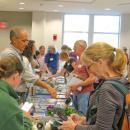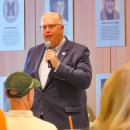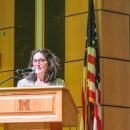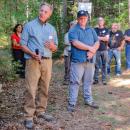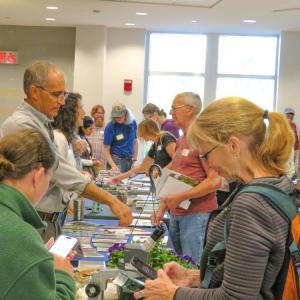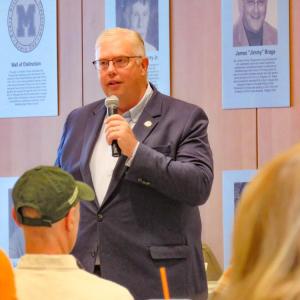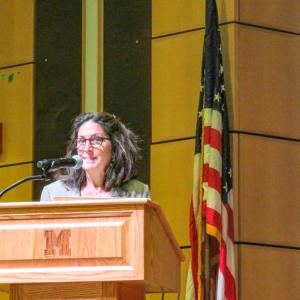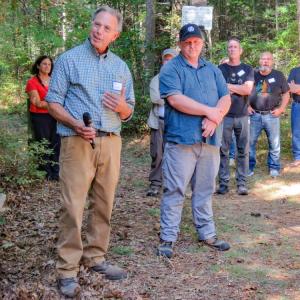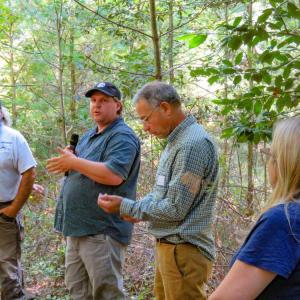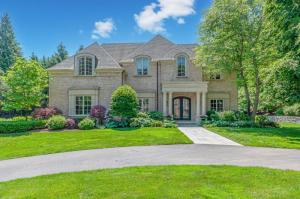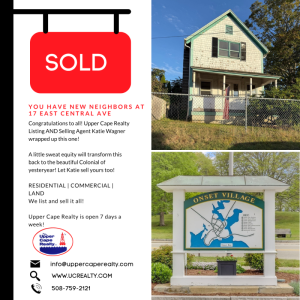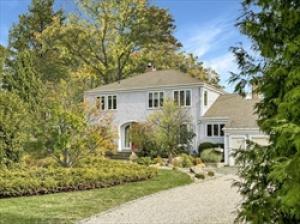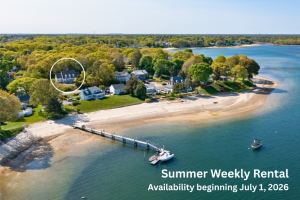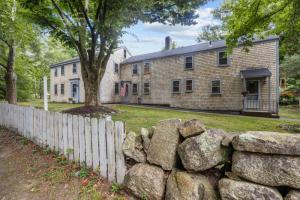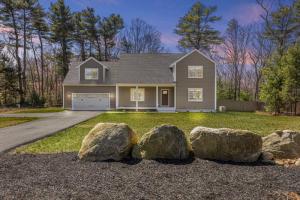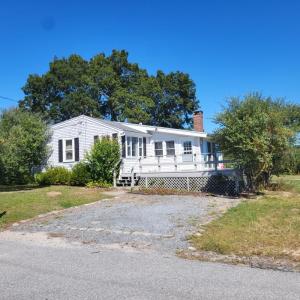Middleboro displays forestry roots at Town Forest Conference
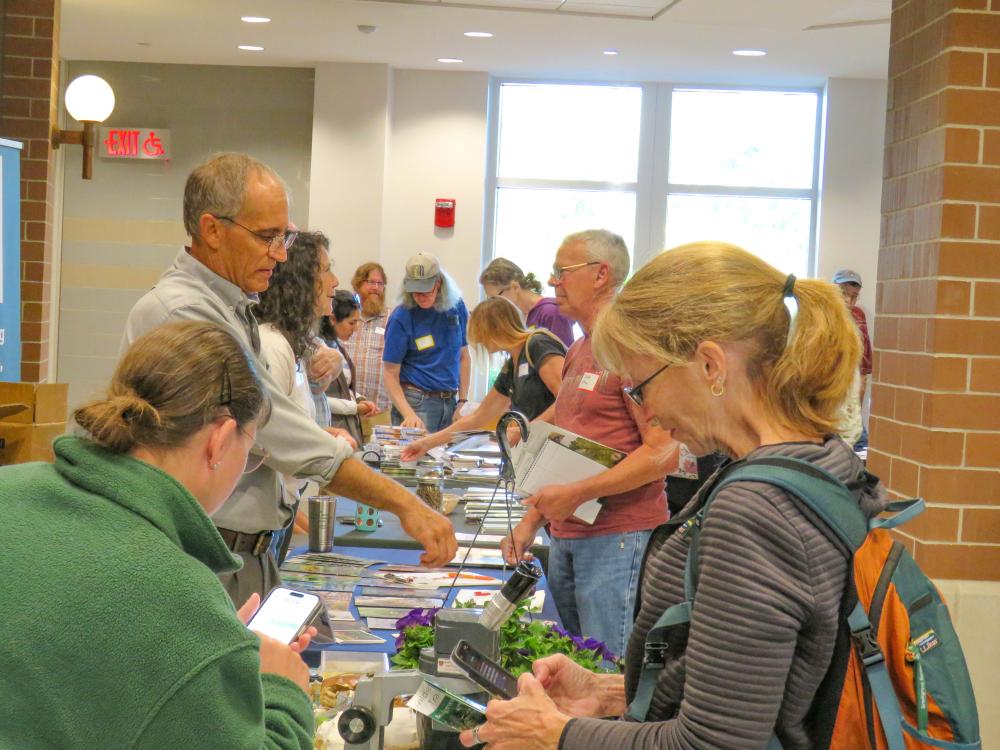 Town Forest Conference attendees and exhibitors at the Middleboro High School Oct. 4. Photos by Grace Roche
Town Forest Conference attendees and exhibitors at the Middleboro High School Oct. 4. Photos by Grace Roche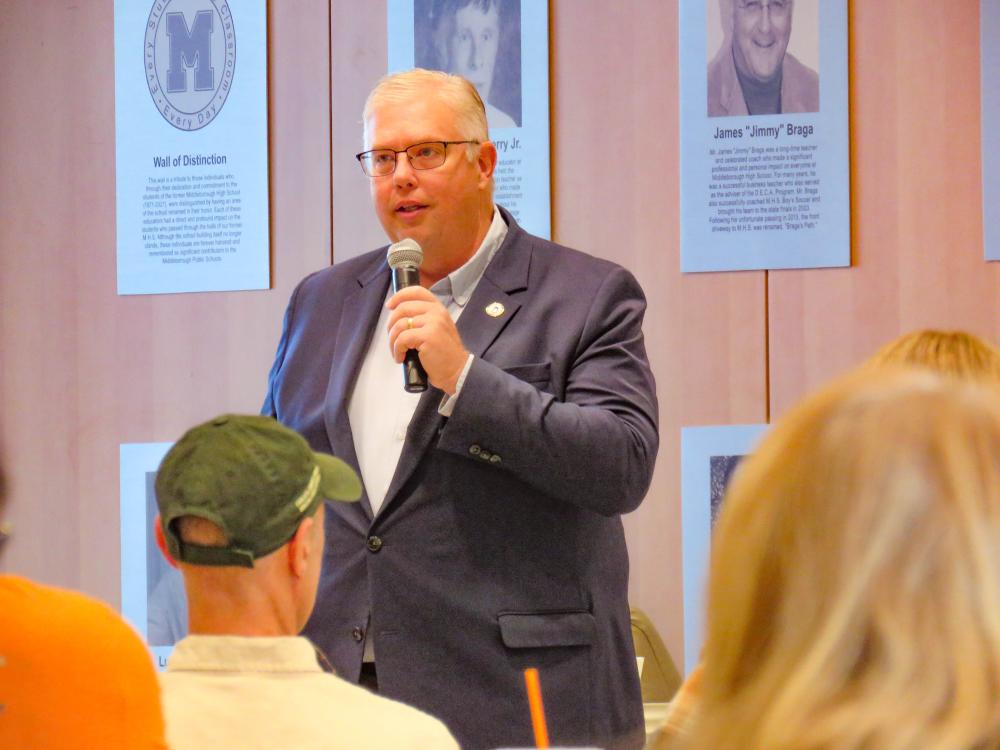 State Rep. Norman Orrall speaks to conference attendees.
State Rep. Norman Orrall speaks to conference attendees. 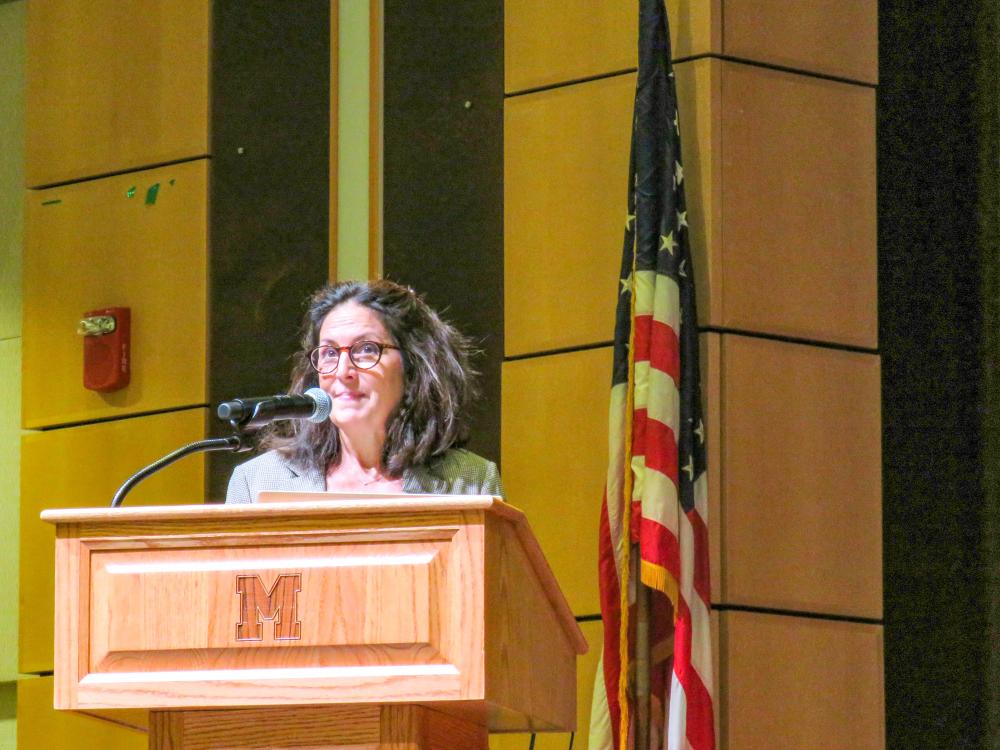 Larissa Hallgren speaks about the town's history.
Larissa Hallgren speaks about the town's history. 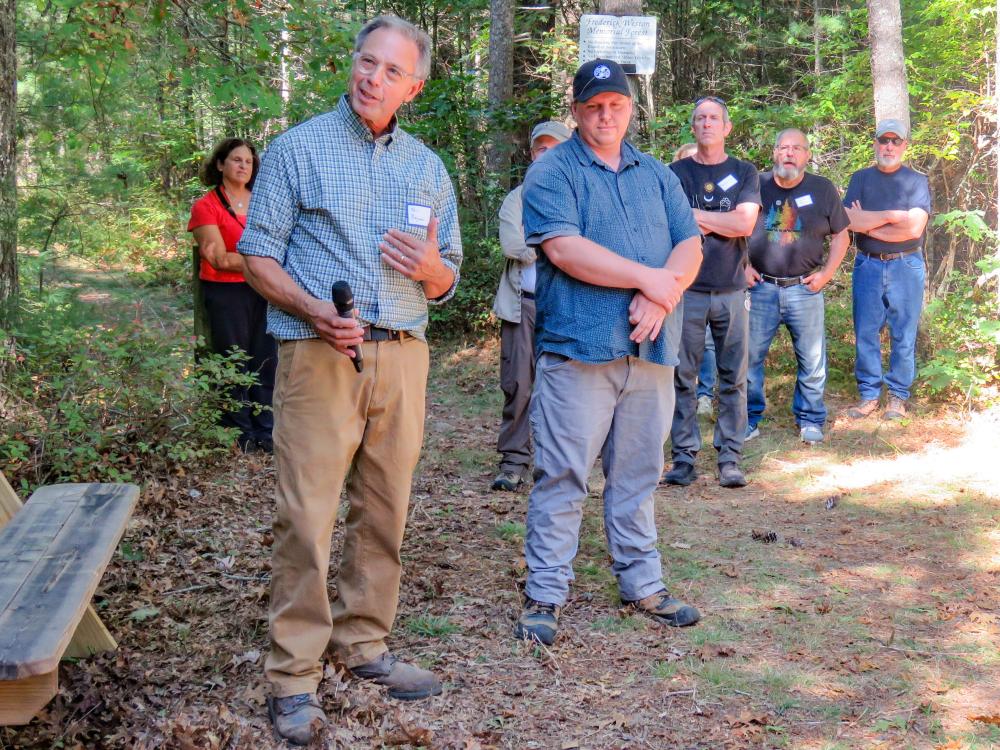 Foresters Phil Benjamin (left) and Tom Farrell guide a tour group at the Frederick Weston Memorial Forest.
Foresters Phil Benjamin (left) and Tom Farrell guide a tour group at the Frederick Weston Memorial Forest.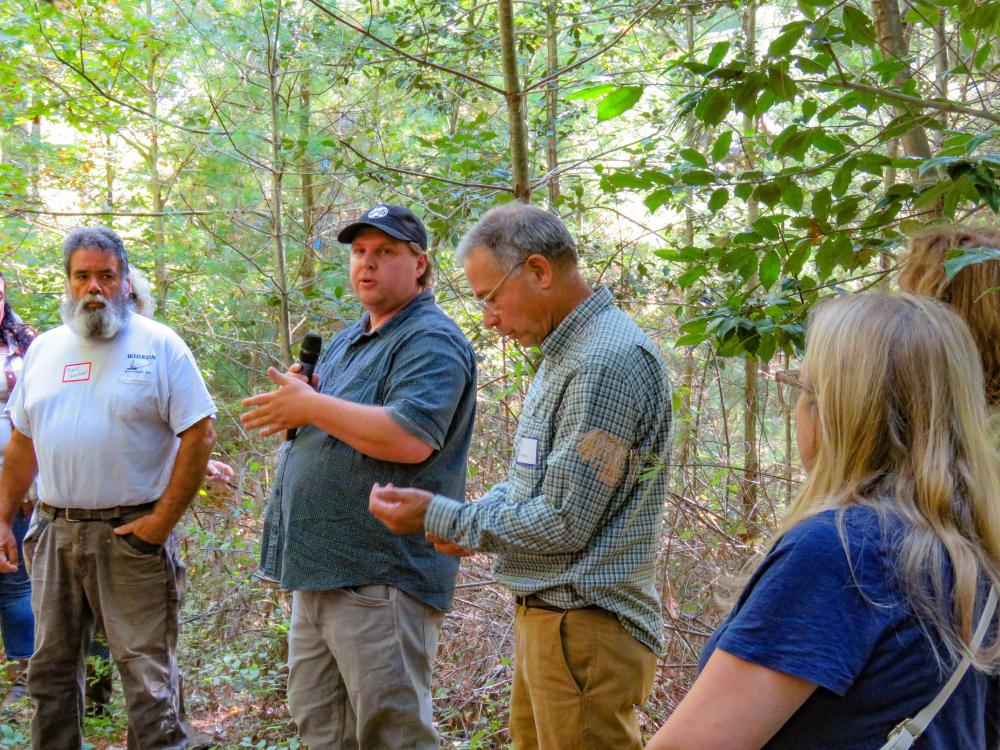 Tom Farrell (center), a Middleboro forester, answers questions during a tour of the Frederick Weston Memorial Forest.
Tom Farrell (center), a Middleboro forester, answers questions during a tour of the Frederick Weston Memorial Forest. Town Forest Conference attendees and exhibitors at the Middleboro High School Oct. 4. Photos by Grace Roche
Town Forest Conference attendees and exhibitors at the Middleboro High School Oct. 4. Photos by Grace Roche State Rep. Norman Orrall speaks to conference attendees.
State Rep. Norman Orrall speaks to conference attendees.  Larissa Hallgren speaks about the town's history.
Larissa Hallgren speaks about the town's history.  Foresters Phil Benjamin (left) and Tom Farrell guide a tour group at the Frederick Weston Memorial Forest.
Foresters Phil Benjamin (left) and Tom Farrell guide a tour group at the Frederick Weston Memorial Forest. Tom Farrell (center), a Middleboro forester, answers questions during a tour of the Frederick Weston Memorial Forest.
Tom Farrell (center), a Middleboro forester, answers questions during a tour of the Frederick Weston Memorial Forest.MIDDLEBORO — Elected officials, foresters and landowners from across the state gathered at Middleboro High School Oct. 4 to connect and explore Middleboro’s farms, forests and bogs.
Middleboro was the site of the Town Forest Conference, an annual event held in a different Massachusetts town each year to exhibit local forestry initiatives. The conference included exhibitors, speeches and field tours.
To start the day off, attendees networked and spoke with various forestry and conservation professionals. They then heard from town and state officials, who spoke about their role in preserving outdoor spaces.
Town manager James McGrail explained the importance of conservation in Middleboro, especially as the town continues to expand.
“Middleboro is a community that is growing rapidly, and is dealing with the effects of that rapid growth. One of the things we’re trying to do in Middleboro is preserve as much open space as we possibly can, as fast as we possibly can,” he said.
He said the town was recently able to purchase some of the areas included in the tours, which he said is part of the town’s “active approach” to preserving land.
State Sen. Kelly Dooner and state Rep. Norman Orrall also spoke, as Middleboro is part of both their districts.
Orral said it was exciting to have the conference in an area he represents, as he has a personal interest in forestry. He said it is also an important part of his work as a legislator, as he aims to ensure new laws don’t harm existing open spaces.
“That’s what makes this conference so important — to empower you to help get you the tools you need in your hometown, and to go back and look at where you can be part of the solution,” he said.
Dooner said she also believed in the importance of protecting area forests, particularly staffing them to prevent fires and ensure the health of Middleboro's forests.
“Making sure that the forest is adequately staffed with the proper people to be able to maintain and protect our forest is a huge priority for Rep. Orrall and myself,” she said.
Attendees then gathered in the school’s auditorium for a presentation by Larissa Hallgren, chair of the Middleboro Historical Commission. She shared the history of the town’s natural resources and spoke on the Frederick Weston Memorial Forest — a forest preservation owned by the town.
She said the area around the forest, located between Tispaquin and Purchase Streets, was cleared out as the town became more settled. The many white cedars in the area were highly sought after by lumber companies.
Industrialization in the area decreased the demand for lumber, Hallgren said, and allowed the forest to regrow. Due to environmental changes, however, the original cedars are now rare.
Upon his death in 1965, the forest’s then-owner Frederick Weston bequeathed the land to Middleboro in his father’s memory. It now serves as a public space for town residents.
“[Weston] wanted it to be used as a bird and animal refuge, a town forest or for a connection with forestry, so its current use connects with what all of you are here thinking about today,” she said to the audience.
The forest was one of several locations conference attendees could tour, along with Picone and Pratt Farms, Benson’s Pond Bog and Red Meadow Cranberry Bog.
Attendees split into three groups after the presentation and lunch, and rode in school buses to the various tour locations. Foresters Phil Benjamin and Tom Farrell led about 30 people through the Weston Memorial Forest to display the town’s revitalization work in the area.
As the group walked through the dappled shade of the pine trees growing there, the two guides spoke about how their team has thinned out some of the new growth to promote fewer but healthier trees.
They also explained how some logging is allowed in the forest, but only on trees the foresters select and with stipulations that keep the area healthy. Benjamin said this raises funds for the town while also helping the forest.
“A logger can go in and take out the big trees, but if they’re banging up all the young trees or the trees we’re leaving behind — then what’s the point,” Farrell said.
He said the loggers harvesting these trees took only the trunks, leaving the tops and branches to decompose and provide shelter for small animals. They also preserved much of the new growth on the forest floor, ensuring new trees will continue to repopulate what was cut down.
Gabrielle Hardyn, a forester from Irving, attended the event again after visiting Stockbridge’s conference last year. She said she enjoyed seeing the work of fellow foresters and hearing from others in the field, especially because her profession tends to be solitary.
According to state data, over 60% of the 3 million acres of forest in Massachusetts is privately owned. Hardyn said she became a forester to help some of these landowners and protect the forest.
“I really care about forests and I wanted to protect them and steward them and help people make good decisions for their forests,” she said. “Helping landowners make good decisions for their forests, for the longevity and resilience of their forests, is super important.”













